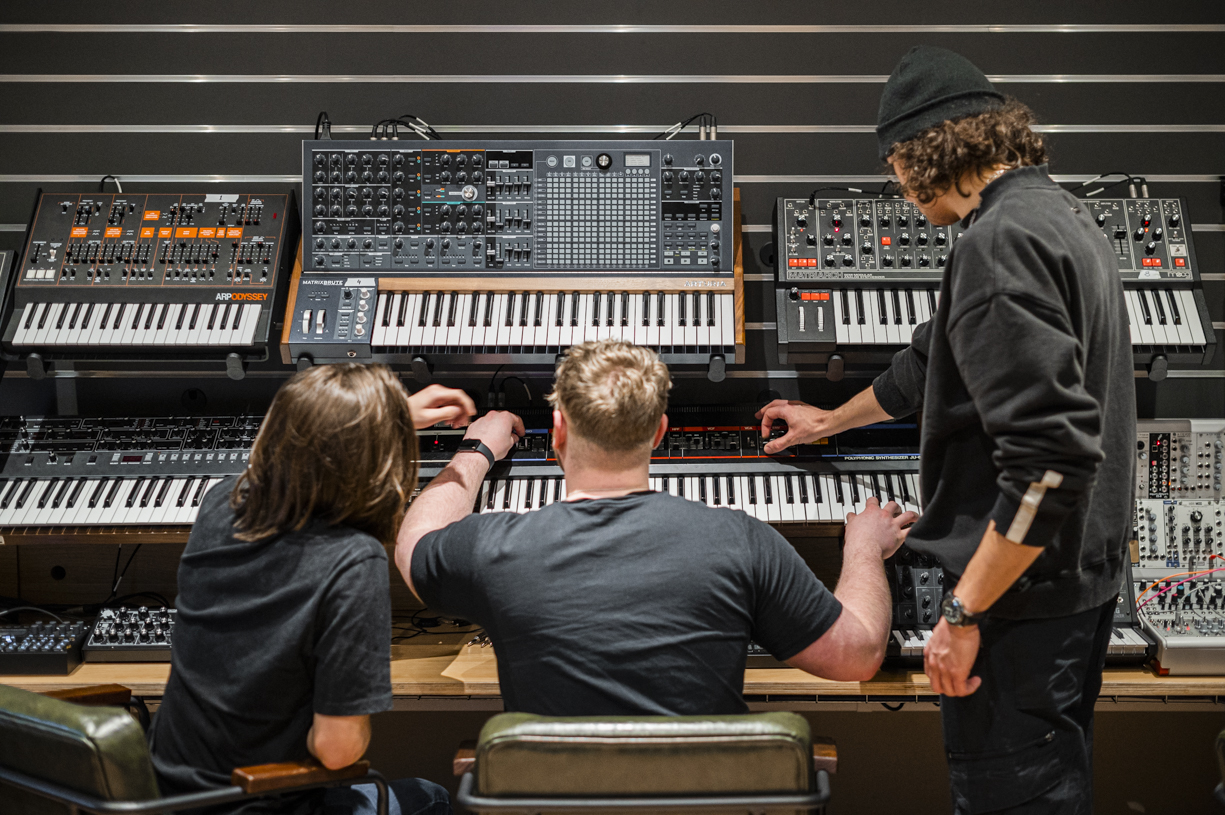You will begin your journey into the studio environment by developing your understanding of the fundamentals of recording. You will learn about large format consoles, signal flow, connections, microphone types, and DAWs to record audio.
You’ll be able to apply these skills whether you’re in a traditional studio or have a small home set up: get this right now, and it will set you up for all of your future studio work.
Studio Practice (20 Credit Points)
In this module, you’ll discover the magic of recording various artists using different styles of recording such as multitracking and overdubbing, in session and in your own time, to form a portfolio of studio work.
Pro Tools Techniques (20 Credit Points)
In the professional audio world Pro Tools is the DAW of choice. In this module, you’ll learn how to use this powerful application by covering Pro Tools navigation and operation, setting you up for the rest of your course and career in audio, and paves the way for Pro Tools accreditation.
Sound Design (20 Credit Points)
In this module, you will develop a range of sound design skills that will allow you to complete various sound design briefs with the scope for further creativity.
You will learn how to analyse sounds and how to choose from and creatively implement arrange of audio generation and manipulation techniques, and how to prepare your sound design work for real-world application in a creative, practical and playful approach to the discipline.
Sound and Audio Fundamentals (20 Credit Points)
In this module, you will experience the core principles of the subject area, in order to understand fundamental theory and how this can be applied to the relevant technology in this field. Areas such as sound wave principles, audio signals, analysis tools and industry standards will be developed, both in understanding and application.
The module is designed to underpin all the technology applied in other modules to ensure you have a solid base of knowledge to build upon.
Your Industry (20 Credit Points)
You will explore contexts of working in the international world of sound and music and how you might establish a career by exploring the flow of money through the industry and relevant current and emerging trends. You’ll assess your current skill set and discover what you need to do to improve your chances of success on your employable journey.
You’ll choose work like briefs lasting at least 80 hours to enable you to experience working opportunities in a field of interest, then reflect on your learning to set you up for the rest of your course in an employable mind set. Your future starts now!


